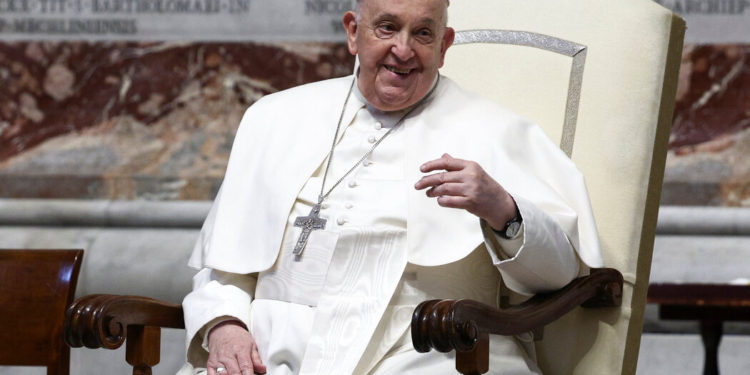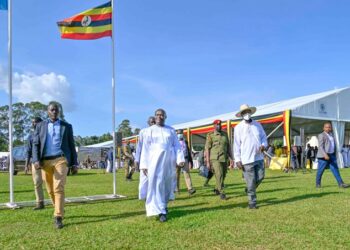By THE NEW YORK TIMES
Pope Francis has reiterated in a new interview that Ukraine should negotiate to end the war with Russia, but this time he used language — adopting his interviewer’s expression, “white flag” — that has drawn attention and raised questions about whether the pope was suggesting that Ukraine surrender.
On Saturday night, the Vatican spokesman, Matteo Bruni, immediately clarified that the pope meant “cease-fire and negotiation,” not surrender, when he said white flag, a universal symbol for giving up.
But the pope’s words and others he used during the interview have underscored how the Vatican has often bewildered Ukraine’s officials and supporters struggling to understand its position.
Early in the war, many Ukrainians expressed frustration with Francis for his refusal to specifically call out Russia and its president, Vladimir V. Putin, as the aggressor in the conflict.
Francis eventually became more vocal in expressing support for what he came to call “martyred Ukraine,” citing Russia’s aggression and praying for Ukraine’s innocent victims. But the Vatican had also sought to avoid taking sides in the war, in part to preserve the possibility that it could be called on to negotiate a peace deal, a hope many geopolitical analysts consider delusional.
Francis used the term white flag in a television interview taped in February with the Swiss television channel RSI. The topic of the interview was the color white. An interviewer asked Francis if he believed that in Ukraine there was the need to “surrender, the white flag in this case,” or if such a capitulation would only legitimize the actions of strongmen.
According to footage of the interview provided by the public broadcaster, which is to be aired later this month, Francis responded by saying the fear of encouraging the aggressor was “one interpretation, it’s true. But I believe that the strongest is the one who sees the situation, thinks of the people, and has the courage of the white flag, and to negotiate.”
Mr. Bruni said the pope was using the image proposed by the interviewer to indicate “the ceasing of hostilities, the peace reached with the courage of negotiation.” He pointed out that later in the interview, Francis said, “negotiation is never a surrender.”
But in that same sentence, Francis calls negotiation “the courage to not bring a country to its suicide.”
The pope has made other statements that have made Ukrainian officials and supporters uneasy, once saying that there was a secret Vatican “mission” to bring peace to the conflict. His habit of giving audiences to allies and officials of Mr. Putin’s government and his blanket condemnation of the arms trade — when Kyiv needs weapons to defend itself — has also undermined the confidence of some Ukrainians in the pope’s support for their cause.
In the interview with RSI, Francis said that today “one can negotiate with the help of international powers, they are there, no? That word negotiate, it is a courageous word.”
He added, “When you see that you are defeated, that things are not going well, you have to have the courage to negotiate.”
“And you are ashamed of yourself?” for negotiating, he continued, adding that if instead, one continued on the same path, “how many dead, and then? In the end it will be worse still.”
He added that it was critical “to negotiate in time, find some country that can act as a mediator.”
“Today, for example,” he went on, “in the war in Ukraine, there are many that want to be mediators, no? Turkey for example. Do not be ashamed to negotiate before things get worse.”
Francis has himself frequently sought to position the Vatican as such a mediator. Asked in the interview if he would be willing to play such a role, he responded: “I am here, period. I’ve said this.”
Mr. Bruni, the Vatican spokesman, added on Saturday that the pope’s hope remains that a diplomatic solution can be reached for a “just and lasting peace.”







Discussion about this post